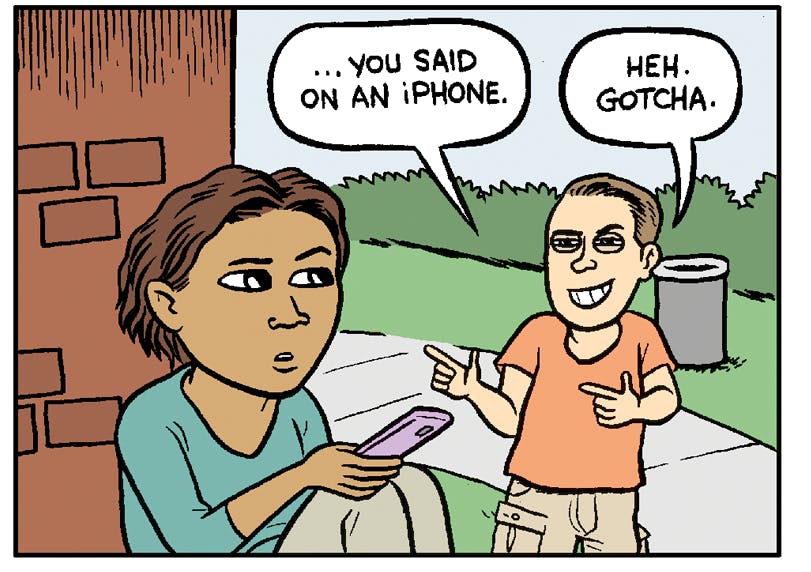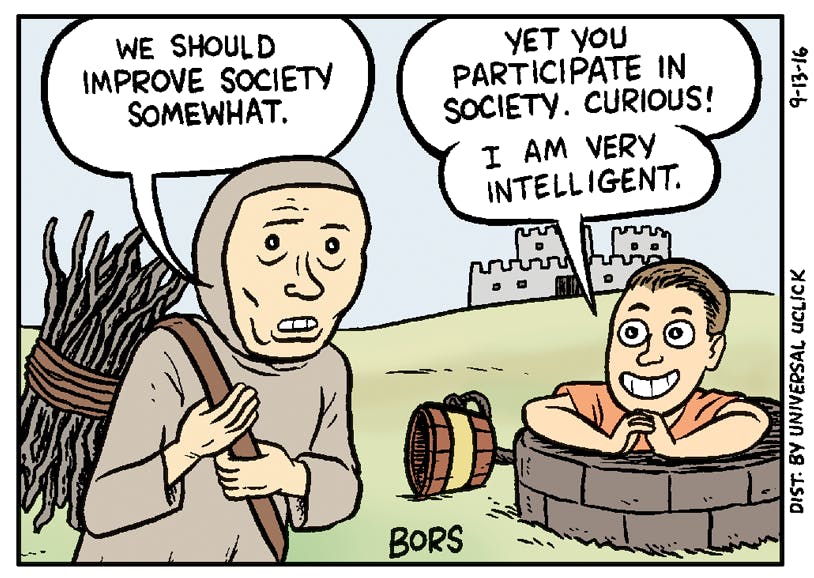I am so grateful for the incredible people I met at GOSH 2022 in Panama and the stimulating conversations. Please help document our collective knowledge by helping @laola here.
One topic that I had chats about with @goldjian and @Nat_Irwin (/@nat??) was on adopting “less closed” software in our lives. Extensive discussion about open source software tools are in this thread, but we also talked about less closed hardware. I’m creating this post as my notes on the topic, plus a related discussion about the challenges of not going all the way and open source “everything everywhere all at once” (no pun intended!), AKA what I call the “Mr Gotcha” problem. I think some of the themes are related to open science hardware, and hope it might be of interest to this community.
Fairphone smartphone
The Fairphone is a modern smartphone designed to be modular and repairable. If a component breaks, you can buy a replacement for it from the company. The modules are designed such that as long as you know how to use a screwdriver, you can repair the phone yourself. I recently replaced the microphone on my Fairphone 3 this way. Additionally, Fairphone far ahead of the industry in sourcing (relatively) environmentally and socially responsible raw materials, and pushing for fairer labour practices.
One problem is that the default operating system for the Fairphone is still encumbered by Google apps. It is convenient for many users, but is certainly not conducive to a fairer society. @goldjian asked if other operating systems are possible.
The Fairphone is unlocked by default, meaning it is fairly easy to replace its operating system. The one I use for my Fairphone 3 is LineageOS. To my knowledge this operating system is completely Google-free. Here is the list of devices supported by LineageOS which includes Fairphones.
More recently, I started using LineageOS with MicroG. Some mobile apps get confused if they don’t “see” Google, and would refuse to work. MicroG is something you install on a Google-free device that “tricks” those apps into thinking Google is present.
@goldjian and I talked about how while the Fairphone is IMO one of the most modular and repairable smartphones, it is not open source hardware. Only Fairphone has the specs to the phone and its components, and only they produce and sell replacement parts. When they stop selling those parts, no one else can make them.
This is a case of a product that’s much less closed than average and achieved positive outcomes, but because it is not truly open source there are still problems.
Framework laptop
@goldjian, @Nat_Irwin, and I also discussed the Framework. It is a fairly new laptop computer that is also designed to be highly modular and repairable. You can even order this laptop as a kit at a discount and assemble it yourself. All you need is a screwdriver. One review said that not only is this laptop the most exciting one they have used, but it’s also “the most exciting laptop I’ve ever broken”.
In my opinion, the Framework is doing this even better than the Fairphone because they have standardised its components more, and the company actively encourages others to develop modules or creative uses. I don’t think the entire laptop is open source, but many of its components are open source. In fact, creative remixes already exist such as this retro terminal which is built around the Framework core.
Unsurprisingly, the Framework laptop is highly compatible with open source operating systems such as Linux distributions. I love my secondhand Thinkpad X220, but the Framework is very tempting the next time I am looking for a computer.
Mr Gotcha
A common theme is that neither the Fairphone nor Framework fully meet the open source hardware definition. We generally agreed, however, that they are far less closed than other products in their categories, and by being less closed they introduce people to the benefits of more open hardware (and software). In this case, modularity and repairability.
Despite the benefits, our conversations reminded me of two frustrations when advocating for open source hardware and software.
One is how it is still not socially acceptable when one asks for the use of open source tools. For example, when a participant encounters trouble joining a Zoom online meeting, everyone is patient and understanding, sometimes calling it an “obligatory technical difficulty” and laughs it off. Eventually the meeting commences.
In contrast, let’s consider the case where the organiser wants to use the fully open source Jitsi Meet for a meeting and god-forbid someone has trouble connecting. What do you hear now? I have personally heard comments like “See? Open source is clearly not reliable”, or “Why do you insist on using an open source tool? This is making things difficult for everyone. You should learn to compromise.” These reactions are ironic given that they are not said when the same problems happen with closed source tools. The latter reaction is particularly patronising and sadly very common in my experience. Would you react the same way when a caterer asks for dietary requirements for a large event, and only one person is vegan? Is this vegan person “making things difficult” for everyone else? Would you judge them the same way? Similar to going vegan, there is a strong ethical motivation for open source software and hardware. I wish for the day when asking for open source tools is just as socially acceptable as asking for vegan options for catering.
The other frustration is what I now call the “Mr Gotcha” problem. IMO this problem takes on two forms. The first are the salty digs at me when I advocate for open source tools. I remember showing how to replace proprietary email clients like Microsoft Outlook for Apple Mail with Thunderbird, and some would respond with: “So why are you doing this on an Apple MacBook running a closed source operating system? Ha, gotcha!” I call this the Mr Gotcha problem because there’s a comic about him and a book about this character:
These kinds of Mr Gotcha responses miss the fact that (1) there are systematic problems beyond individual actions; and (2) there is still value to individual action even when you can’t go all the way all at once (e.g. towards veganism or open source). Both can be true.
The other side of the Mr Gotcha problem manifests within communities advocating for open source. I’ve seen so many threads where open source “experts” would be harsh and judgemental towards those new to the concept. I remember a conversation where someone was complaining about the extensive use of closed source software in their organisation (like the use of Microsoft Outlook or Zoom). I was dismayed to see responses from allegedly open source “advocates” blaming that person for their own use of proprietary software, or saying “I’ve exclusively use open source software in my life and work, it’s really not that hard!” or “If they don’t listen to you, just go on strike and ask your colleagues to strike with you until your company uses 100% open source software.” ![]() These responses - especially in the form of “just do x…” - demonstrate a striking lack of empathy and understanding of how difficult adopting open source tools can be for most people, and IMO are counterproductive to a good cause.
These responses - especially in the form of “just do x…” - demonstrate a striking lack of empathy and understanding of how difficult adopting open source tools can be for most people, and IMO are counterproductive to a good cause.
What am I trying to say with all this??? I guess it comes down:
- a need for having empathy about the challenges facing adopting open source in today’s reality
- understanding that it’s difficult and likely impractical to aim for going all the way all at once, while
- planning strategically on how to advance the cause with smart compromises that do not detract from the goal
For point 3., I am concerned that it is very easy to use the need for compromise as an excuse for apathy and inaction. This is a trap that’s easy to fall into! Lots of tricky tradeoffs here.
Thanks for putting up with my little rant. This is just one out of many wonderful, thought-provoking conversations I got from you at the Gathering in Panama. What do you think of the above? Happy to hear your thoughts.
On a more meta level, it would be great if conversations from our meetings could continue openly like this, so that knowledge is retained and shared and discussions made more accessible to those who couldn’t join in person.
If you enjoyed the sessions in Panama or had other interesting conversations, please help with @laola’s documentation effort!


